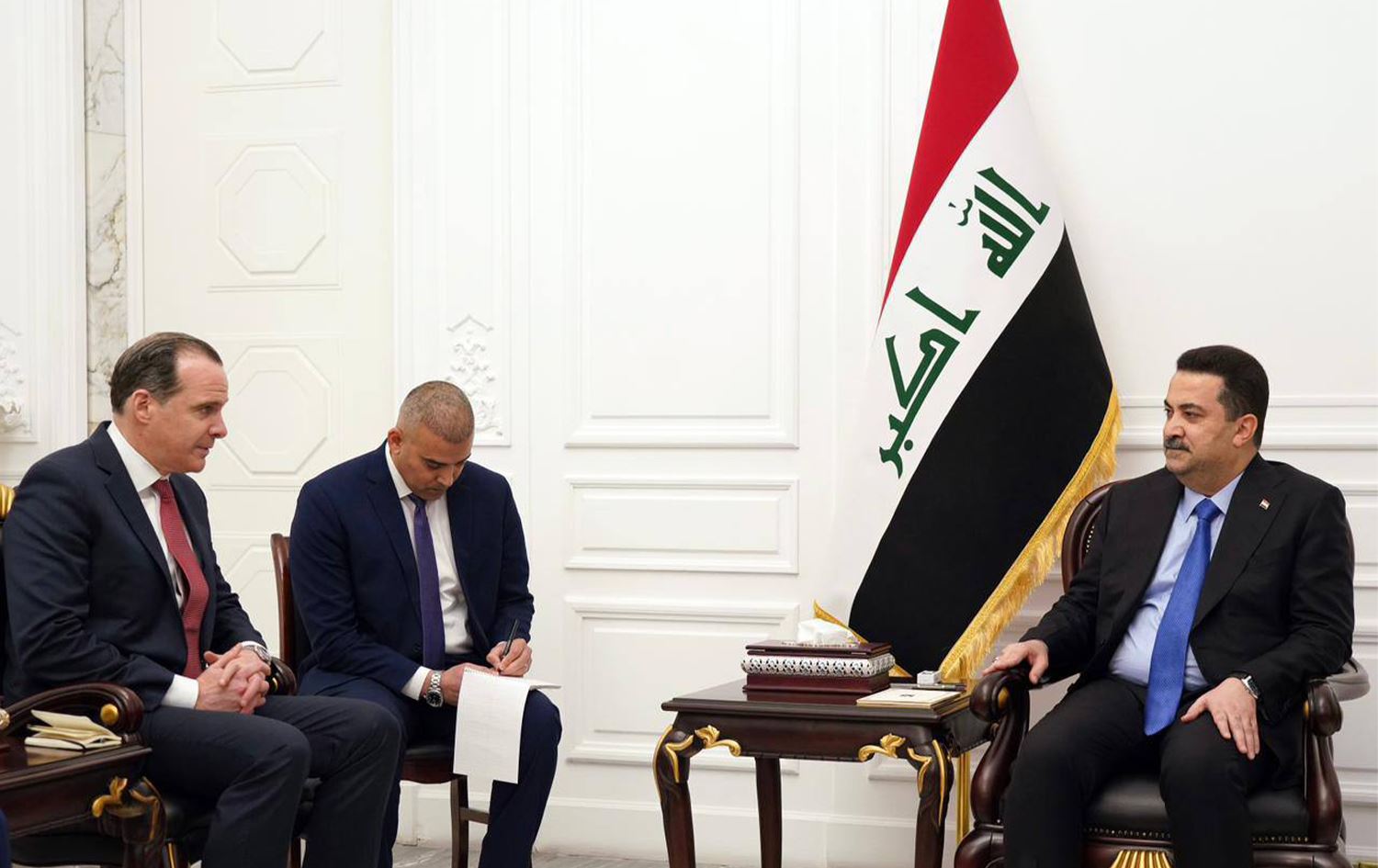The US is interested in following developments in Iraq, particularly Iraqi Prime Minister Mohammad Al-Sudani’s leadership, and the Iraqi political scene, which exhibits diverging attitudes by different powers towards US relations and Iranian influence.
In this context, National Security Council Coordinator for the Middle East and North Africa Brett McGurk’s visit to Iraq came on January 16, as part of the Biden administration’s effort to reaffirm its commitment to support Iraq in the fight against ISIS, and to counter Iran’s regional influence against the backdrop of stalled nuclear negotiations.
Multiple messages
McGurk’s visit to Iraq signals several messages, most notably:
1. Continued US troop presence: Fears that US presence in Iraq, estimated at 2,500 US troops, would be affected with the election of Mohammad Al-Sudani as Prime Minister, having been endorsed by pro-Iranian forces in the Iraqi Parliament, which established the Coordination Framework that adopted the objective of removing US troops from Iraq in its recent election campaign, in parallel with continuing attacks on US military bases in Iraq which host American trainers and consultants.
However, McGurk’s meeting with Al-Sudani revealed his continued support for US military presence in Iraq, confirming his previous interview with the Wall Street Journal on January 15, where he asserted that his country still needed US troops to maintain security and eliminate ISIS.
2. Baghdad’s commitment for the elimination of terrorism: McGurk’s statements during his visit to Iraq and his meeting with the Iraqi PM underscored the American approach to fighting terrorist organizations in the Middle East, which is based on supporting noncombative support to allies in the confrontation of terrorism.
McGurk reiterated his country’s continued commitment to advising, empowering, and assisting Iraqi forces in their fight against ISIS, and ensuring that ISIS cannot reconstitute and return to Iraq and Syria.
3. Developing Iraq’s energy sector: As Iraq is looking to capitalize on its large natural gas reserves by exporting them to European countries facing an energy crisis following the Russian-Ukrainian war since February 24, 2022. As the EU seeks alternative sources of natural gas to reduce its dependence on Russia, this helps it meet the growing global energy on the one hand, and stimulate the Iraqi economy on the other.
In assisting Iraq in developing its oil sector, during his meeting with Al-Sudani, McGurk reaffirmed US support for the Iraqi government’s projects in the energy sector, and the fight against climate change. Indeed, McGurk’s visit was accompanied by Amos Hochstein, Special Envoy and Coordinator for International Energy Affairs, demonstrating US efforts to encourage Iraq to proceed with the gas transport project to Europe.
4. Settling disputes between Kurdish forces: McGurk’s visit to the Kurdistan region of Iraq, and his meeting Kurdish figures, including Kurdistan Democratic Party’s (KDP) President Masood Barzani and other Kurdistan National Union (PNK) officials, to unite the Kurdish ranks after tensions escalated between the KDP and the PNK concerning the negative implications of American efforts in the fight against ISIS.
McGurk has played a key role in providing US support for Kurdish-led militias in Syria in their fight against ISIS, particularly given American fears that Iran will exploit Kurdish tensions to bolster its influence inside Iraq after a period of deterioration. The US is accepted as a suitable mediator between the two Kurdish parties, and could help prevent political tensions from turning into violence that would affect Iraq’s stability, which is a key objective of the US administration.
5. Reducing Iranian influence: Since its very first day in the White House, the Biden administration has focused on reviving the nuclear deal from which the former Trump administration withdrew. The failure of diplomatic efforts and indirect talks over the resumption of the Vienna negotiations has led the US to refocus on countering Iranian influence in the Middle East region, particularly in Iraq.
The control of Iraq’s political landscape by pro-Tehran parties raises many American concerns. Incidentally, McGurk’s visit coincided with the visit of Iranian Quds Force commander Esmail Qaani’s visit to Baghdad on January 16, revealing an ongoing US-Iranian rivalry at a time when the Coordination Framework is suffering from many political divisions. Recently, Baghdad has taken a number of steps that appear to break away from Iranian partiality, especially with Al- Sudani’s statements that support his country’s need for the continued presence of US troops in Iraq, a position that stands apart from those of the Framework.
In an attempt to reduce Iranian influence in Iraq, McGurk’s visit underscored US commitment to the Strategic Framework Agreement, and Washington’s support for the outcomes of the Baghdad II conference held in Jordan on 20 December last, signifying Iraq’s return to the Arab fold.
The Conference sent clear messages rejecting non-Arab regional interventions, and carried assurances by the Iraqi Prime Minister that Iraq was distancing itself from escalating axis in the Middle East. In his dialogue with the Wall Street Journal, Al Sudani remarked that Iraq was looking to build good relations with the US and Iran, adding that, “It is not impossible to see Iraq have a good relationship with Iran and the United States of America.”
Growing Interest
McGurk’s visit reflects growing US interest in the crises facing the Middle East as imposed by new variables on the international scene, particularly with regard to the outbreak of the Russian-Ukrainian war, which is unlikely end in the near future given each side’s insistence on upholding their demands, and declining efforts to reach a settlement, not to mention the power rivalry between the US and China in the region.


